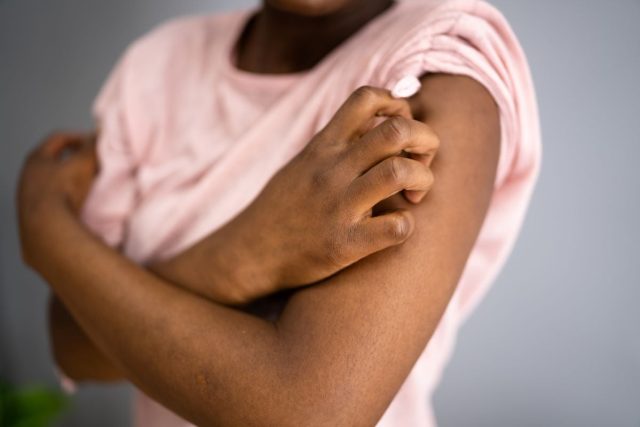Skin biopsies, indicating diagnostic uncertainty, performed most frequently for Black patients
By Elana Gotkine HealthDay Reporter
FRIDAY, Aug. 9, 2024 (HealthDay News) — There are racial differences in the frequency of skin biopsy for psoriasis, indicating diagnostic uncertainty, according to a research letter published online Aug. 7 in JAMA Dermatology.
Fahad Ahmed, from the Perelman School of Medicine at the University of Pennsylvania in Philadelphia, and colleagues conducted a cross-sectional study involving adults seen in outpatient dermatology clinics to examine skin biopsy frequency, as an indicator of diagnostic uncertainty, by race and ethnicity among patients with psoriasis. A total of 10,008 patients were included in the study.
The researchers found that 4.8 percent of patients received a skin biopsy for psoriasis. Skin biopsies were performed most frequently among Black patients (9.8 percent), followed by Asian or other Pacific Islander, White, unknown race, Hispanic, and other race patients (4.7, 4.1, 4.0, 3.7, and 1.61 percent, respectively). Compared with White patients, Black patients had significantly higher odds of receiving a skin biopsy for psoriasis in analyses adjusted for sociodemographic and health care utilization factors (odds ratio, 2.03). In sensitivity analyses that evaluated both narrower and broader definitions of a skin biopsy for psoriasis, the findings were robust.
“These findings add to the limited literature on diagnostic uncertainty by patient race and ethnicity in the clinical setting; they confirm similar findings from a small prior study and provide important granularity on the association between specific racial and ethnic groups and the likelihood of skin biopsy for psoriasis,” the authors write.
One author disclosed ties to the pharmaceutical industry.
Copyright © 2024 HealthDay. All rights reserved.



















